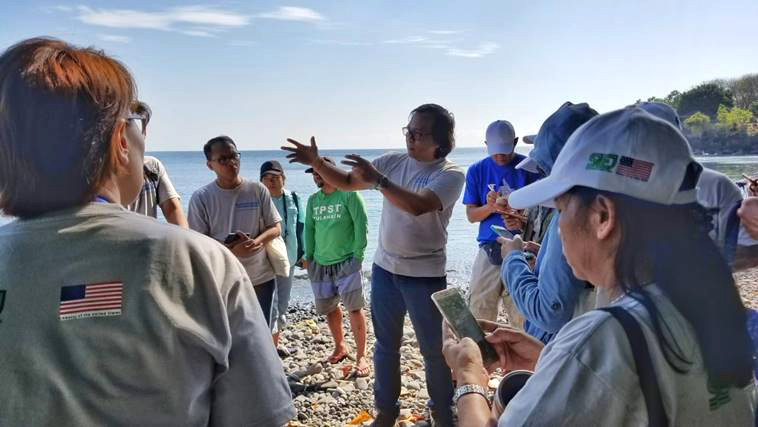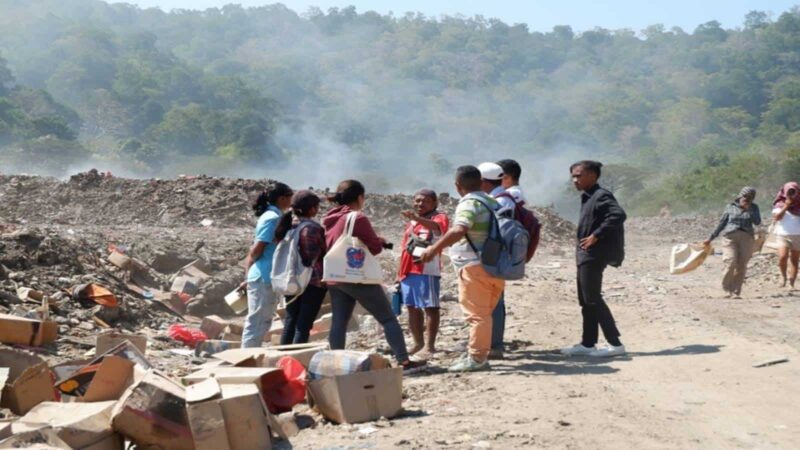From the start of the Earth Journalism Network’s Asia-Pacific project in late 2017 to the end of 2018, we have provided grants to 16 organizations to implement projects that aim to strengthen local coverage of climate change and other socio-environmental issues. The project has also awarded 84 grants, including special project’s grants, to individual journalists across the region to develop stories that focus on the impacts of environmental change.
Here are some recent highlights of our media grantees’ activities:
- Verafiles, from the Philippines, trained and mentored environmental reporters in investigative reporting of “cold” environmental disaster cases –- disasters that have caused series loss of life and property but fallen from the headlines — and developed the Earth Files website to publish these stories. They also led a training workshop on journalism safety.
- Fundasaun Media Development Centre from Timor-Leste trained young journalists on environmental reporting and established a Timor-Leste Media and Environment Network to encourage knowledge sharing among journalists. It also produced a series of radio programs highlighting environmental issues and innovative solutions to environmental problems.
- In Indonesia, non-profit media development organization Climate Tracker trained young, local journalists to report on biodiversity, while the Society of Indonesian Environmental Journalists (SIEJ) organized several workshops on renewable energy, ocean conservation and digital security for reporters.
- And the Academy of Journalism and Communication in Vietnam organized two trainings focused on the country’s struggle with waste pollution and salt water intrusion.
- In South Asia, chinadialogue provided young journalists in Bangladesh, Nepal and India with the theoretical support and practical knowledge to report on environment and climate change issues through three trainings in Dhaka, Kathmandu and Kolkata. The workshops focused specifically on the impacts of climate change on marginalized communities.
- Pakistan’s Tribal News Network conducted courses on climate change, natural resource management and environmental protection for journalists from the remote districts of Khyber Pakhtunkhwa and Federally Administered Tribal Areas (FATA).
- In Nepal, the Indigenous Media Foundation (IMF) developed a training manual on climate change aimed at journalists from indigenous communities and conducted a three-day workshop on climate change and its impact on biodiversity and indigenous people. IMF also produced a series of radio and television programs that discussed climate change and forestry issues faced by indigenous communities.
- Finally, in the Pacific region, EJN helped establish the Pacific Environmental Journalist Network (PEJN), which has since provided a number of environment-related trainings to journalists across the Pacific islands.

Although the impacts of these activities usually take time to develop, we have already observed some positive outcomes. For example, Thailand’s environment authority conducted an investigation that led to an order for factories to stop releasing waste water for farm irrigation following two stories published by our media grantee, the Isaan Record, that investigated farm pollution caused by the disposal of waste water from local factories.
We’ll continue to collect information on the impacts the work we support is having. We’ve also just announced our next batch of media grantees and are in the process of selecting our next story grant recipients. More exciting news is ahead in 2019, so follow us on Facebook or Twitter or check our website for regular updates.
(Banner photo: Journalists from Timor-Leste at a landfill site as part of the environmental reporting training provided by FMDC. Credit: EJN)
